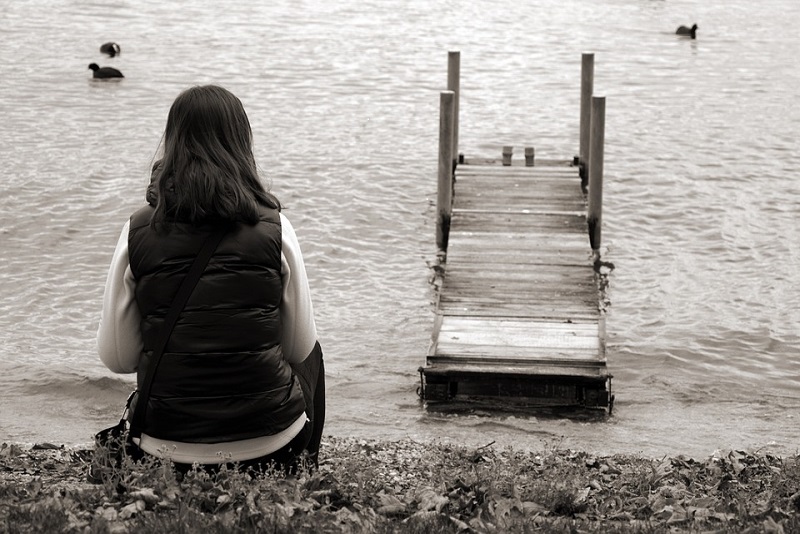When my wife and I decided to have children, the last thing we expected was for one of us to feel unwanted by our own child. We now have a three year old and a 10 month old, and for some time now my wife has, at times, been feeling rejected by our eldest.
We always knew that we wanted to have children and so after getting married and buying our first home together, we started our journey towards motherhood. We both liked the idea of being pregnant, and the good thing about having two wombs between us was that we could make practical decisions about who would carry our first child. I had been in my job for longer and therefore would get better maternity pay, and so we decided that I would have the first child, and my wife would have our second. How confident (and naive) we were in our plans!
Now, four years after we started fertility treatment, it is difficult to find the words to express how grateful we are for our two daughters. Conceiving our second was not as straightforward as our first, but we were fortunate that our plan of carrying one baby each was possible.
One of the things that we were not prepared for was the way that we both fiercely feel like mothers, and yet one of us will often feel like we have been sidelined into a different role. This is most noticeable with our eldest. I carried her, gave birth to her and breastfed her. I returned to work part-time so that we could be at home together for most of the week, and I continue to do the drop off and pick up at the childminder’s house on my work days.
As a result of being the main caregiver, I am the boring mummy. I have dragged our daughter on all of the tedious jobs; trips to the supermarket, taking the car for its MOT, and going to the bank. I have left her to entertain herself when the washing up pile has become unbearably enormous or when cleaning the bathroom cannot wait any longer.
My wife, on the other hand, has been the breadwinner of the family and has missed out on the days at home with us. She is therefore full of enthusiasm and excitement when she spends time with the girls, and is very much ‘the fun mum’; turning the furniture upside down to build dens, getting the paint out, and finding the muddiest puddles imaginable. The girls love their time with her; I hear squeals of delight at whatever fun game she has concocted, and the mountain of washing at the end is proof of a great day. But it seems that no amount of being fun mum can offset being the non-birth mum. The upset comes when no matter what my wife does, our eldest daughter only wants me when she is tired, upset, or miserable. However hard my wife tries to help, our daughter will scream ‘Not you! I want mummy!’ at her. On bad days she only wants me, leaving my wife feeling rejected and wondering how she can fulfil a role that meets the needs of our daughter. The two of us have talked about this at length when the girls are tucked up in bed; my wife feeling sad and rejected by our firstborn, and me feeling guilty for being the ‘chosen parent’.
However, I am beginning to see a similar pattern emerging with our youngest daughter whom my wife carried. When she falls over, it is not me that she seeks comfort from. If I go to her when she wakes in the night, she will place both of her little palms on my chest and push me away with force. If I am holding her and my wife walks into the room, she will hold her arms out to be transferred into her birth mother’s arms.
Surely motherhood isn’t supposed to be like this? But we are not alone with this experience. Friends who are also same sex parents have remarked that they have been through similar periods of favouritism and rejection. Speaking to some of our straight friends, they have agreed that their children will often cry out for mum in a crisis, whilst dad has to take a back seat. The general consensus is that dads might feel less offended by this, as perhaps they are more understanding of the strength of a mother’s bond with her young children. But we are two mothers, and so we both want to have the mother-daughter bond that we instinctively feel we should have with both of our children. It is difficult for us to accept that either daughter would rather go to her birth mother. Society has not offered a rule book for the ‘traditional roles’ of two mothers raising children together (although this freedom to parent as we wish is also wonderful).
We try to remind ourselves that they are still babies and as sad as it may make us feel, perhaps the bond created by being the birth and breastfeeding mother is stronger than we realised. Following each of our labours, we have individually experienced the rush of the immediate bond with the newborn we have felt growing within. In contrast, nurturing the slower to develop mother-daughter relationships remains a work in progress. At least it is a comfort to know that we both understand how painful it can be to feel rejected. As the girls grow we anticipate that they will develop their own unique relationship with each us, and that they will come to need us both in different ways.
Like this? Share it! You can read more about same-sex parenting or for the latest from The Motherload®, head to our homepage



No comments yet. Be the first one to leave a thought.